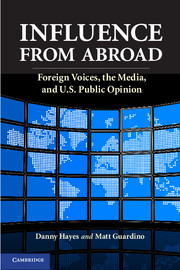5 - Conclusion
Foreign Voices, New Media, and Democratic Accountability in U.S. Foreign Policy
Published online by Cambridge University Press: 05 April 2013
Summary
On an overcast day in late February 2003, an Army Ranger stationed at Fort Lewis, WA, sat down with his private thoughts. Along with his brother, the young man had joined the military in the months after the 9/11 attacks, drawn to the service by what he saw as his patriotic duty to fight terrorism. Since enlisting, he had suffered through grueling basic training and the demanding Ranger Indoctrination Program. He was ready for combat.
But as it became clear during the winter that the United States was marching toward a military conflict in Iraq, he was unsettled. Writing in his journal seventeen days after Colin Powell delivered his dramatic presentation at the United Nations about the threat posed by Saddam Hussein’s regime, the soldier expressed misgivings about the looming war and what it would mean for him and his brother, whom he called “Nub:”
It may be very soon that Nub & I will be called upon to take part in something I see no clear purpose for.…Were our case for war even somewhat justifiable, no doubt many of our traditional allies…would be praising our initiative.…However, every leader in the world, with a few exceptions, is crying foul, as is the voice of much of the people. This…leads me to believe that we have little or no justification other than our imperial whim.
- Type
- Chapter
- Information
- Influence from AbroadForeign Voices, the Media, and U.S. Public Opinion, pp. 129 - 150Publisher: Cambridge University PressPrint publication year: 2013

